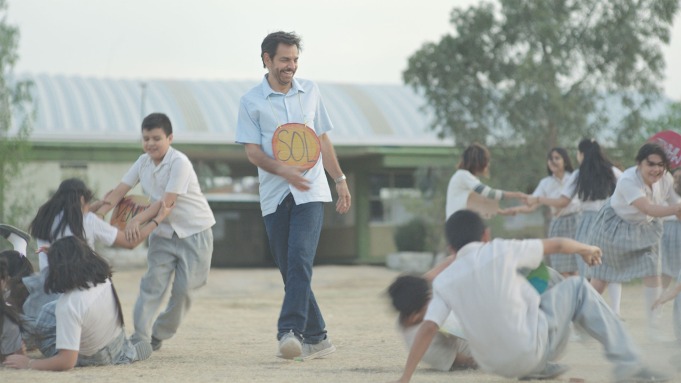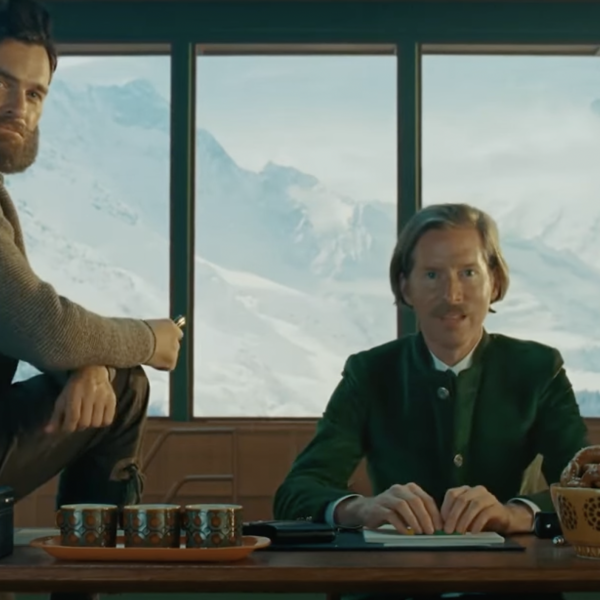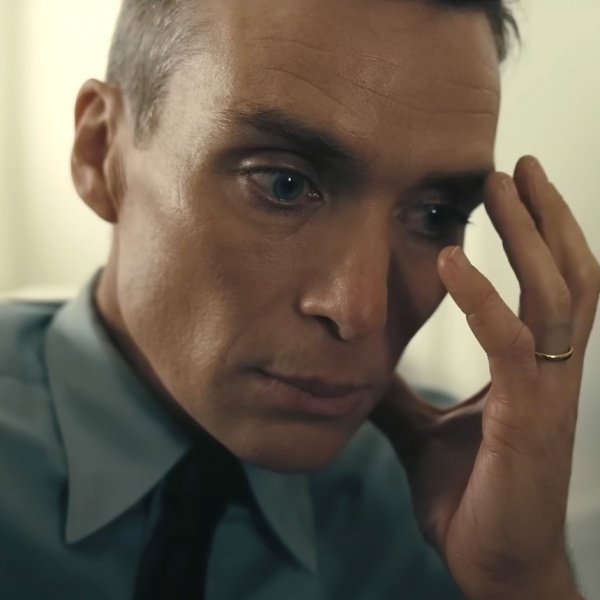Editor’s note: This review was originally published at the 2023 Sundance Film Festival. Participant and Pantelion Films releases the film in theaters on Friday, November 3.
The figure of the selfless teacher with an idealist mindset about education has abundant onscreen representation. Of these, Edward James Olmos’ lively, Oscar-nominated portrayal of Jaime Escalante, who taught math to marginalized teens at James A. Garfield High School in East Los Angeles, in “Stand and Deliver,” serves as quintessential example of these admirable paladins of knowledge in American popular culture.
In the well-intentioned drama “Radical,” Eugenio Derbez boasts similar, if more subdued charisma as unorthodox elementary teacher Sergio Chavez. This crowd-pleaser based on a remarkable true story documented in a Wired article by Joshua Davis (also a producer here), marks the Sundance return of director Christopher Zalla, whose 2007 debut “Padre Nuestro” won the top jury prize in the U.S. Dramatic competition.
The role plays to the Mexican actor’s comedic strengths, seen most recently in the Best Picture winner “CODA,” where he played an equally caring music instructor, but this time with an earnest edge to match the sobering precariousness that permeates the lives of Sergio’s pupils. The film is set during 2011 (one of the bloodiest years in the Mexican drug war), in the border city of Matamoros, Tamaulipas, a locale deeply affected by the ongoing carnage; the otherwise conventionally inspiring narrative operates with uniquely high stakes.
One early scene illustrating the normalization of the horrors sees two unfazed children walking by several dead bodies barely covered with a sheet. That’s the context that welcomes Sergio into the Jose Urbina López Elementary School, an institution dubbed “School of Punishment” for its run-down facilities, lack of computer equipment, and generally low expectations and commitment from the majority of the instructors. Results in standardize tests have higher priority than the lifelong repercussions of scholastic neglect.
Sergio’s sense of responsibility for the children’s formation and personal growth disrupts the status quo, which concerns kind-hearted Chucho, the school’s principal played by versatile actor Daniel Haddad — recently seen in the tonally opposite film, “The Box.” Their burgeoning friendship, leading to Chucho’s change of heart, provides a fun, buddy comedy-like extra layer to the “one person can change the world” messaging at hand.
“Radical” can’t escape a formulaic construction with scenes that pack a predictably saccharine punch (see: kids rushing to hug their beloved teacher once he has proven himself an ally). And yet, as unsubtle as the story beats tend to march on, the backdrop of poverty and hopelessness make the light that Derbez’s character brings into the classroom, and in turn into the youths’ lives, earned. Save for a few instances of stilted line delivery — the occasionally unnatural dialogue is likely to blame — the young ensemble cast excels at relatively naturalistic acting, demonstrating Zalla’s directorial dexterity to achieve that. The film’s unassuming, muted color palette and stirring soundtrack uplift it as well.
Among the two dozen students in Sergio’s sixth-grade class, a trio of them become the dramatic focus of this tearjerker, each with their own perilous circumstances that recurrently hinder their aspirations for the possibility of overcoming despair. Science-inclined Paloma (a quietly searing Jennifer Trejo) works with his father searching for metal in a landfill. The distance between her reality and her dream of being an astronaut seems to her as massive as that between Earth and the sun, but Sergio convinces her there’s a path.
For her part, Lupe (Mia Fernanda Solis) has been forced to assume a parental role for her siblings while their mother works. Her horizons expand when Sergio suggests philosophy could interest her. Meanwhile, coerced by a local kingpin to transport drugs, class clown Nico (Danilo Guardiola) begins to wonder if in fact he could break the cycle of crime and death. The outcomes of their respective pursuits vary in degrees of unexpectedness.
Inside the classroom, Sergio’s at times heavy-handed speeches (which follow beyond the school in most interactions) ring as a believable performance to connect, build trust, and offer an alternative way of learning that sidesteps mechanical memorization of empty facts and instead encourage curiosity and hands-on experimentation with academic concepts. Sentimental as they are, and they certainly are, scenes where Sergio discusses the density of an object or a planet’s orbit not with a book, but via playful activities, still charm.
Although “Radical” isn’t in the same league as the 2008 French title “The Class” by Laurent Cantet, a stellar entry in this sub-genre, one can’t help to smile at Derbez’s endearingly amusing rendition of a man driven by vocation. A project produced partially through the actor’s own company, 3Pas (co-owned with Ben Odell), “Radical” continues Derbez’s dedicated efforts to create his own opportunities in front of the camera, this time as the lead in a substantially more dramatic film than his usual, broader fare.
It’s not difficult to see why Derbez, Zalla, or Davis saw potential in the extraordinary feats of Chavez and the minds he cultivated — the title card at the end will surely astound more than a few without previous knowledge of the events. Those who inspired “Radical” deserved to be celebrated, and it’s likely that a mass-appealing filmic interpretation of their against-the-odds accomplishments might function as the farthest-reaching vehicle to disseminate them.
Grade: B-
“Radical” premiered at the 2023 Sundance Film Festival.



